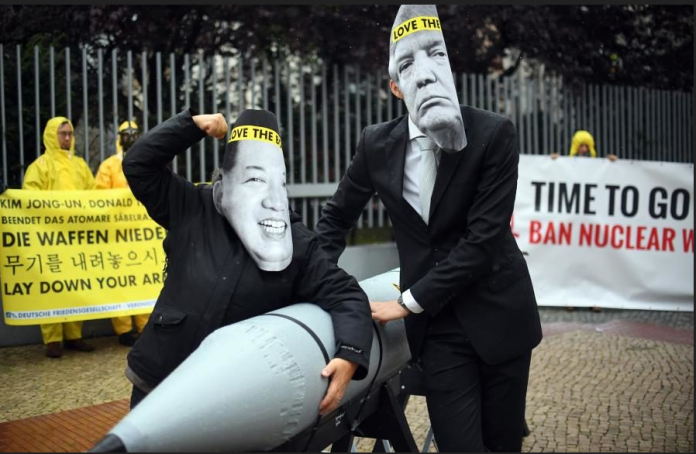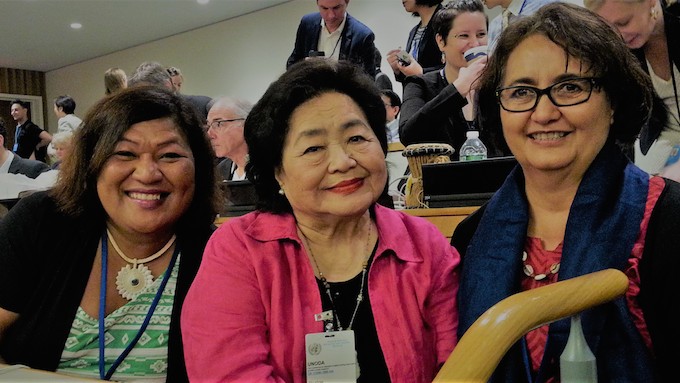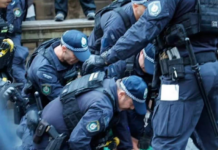
ANALYSIS: By Dr Vanessa Griffen
The Norwegian Nobel Committee announced earlier this month that the 2017 Nobel Peace Prize was awarded to ICAN, the International Campaign to Abolish Nuclear Weapons.
ICAN is an international non-profit network of more than 465 organisations with campaigners in 100 countries.
ICAN was singled out by for the Nobel Peace Prize announced on October 6, as the committee recognised the role it played in raising awareness of the humanitarian impacts of nuclear weapons and in helping to bring about the historic Treaty on the Prohibition of Nuclear Weapons, adopted in the UN General Assembly on July 7 this year.
The treaty now makes nuclear weapons illegal for any use, development or threat of use. They are to be eliminated.
While ICAN is honoured by the award, it immediately gave credit to the many campaigners around the world who helped make the treaty possible. It also noted the role of the hibakusa atomic bomb survivors of Hiroshima and Nagasaki, and nuclear weapons testing victims all over the world, who shared their suffering to bring about the prohibition treaty.
The Pacific Islands’ region has a long history of protesting against nuclear weapons due its legacy – unique in the world perhaps – of being used by nuclear armed states, the United States, United Kingdom and France as sites to develop and test their nuclear weapons.

The Marshall Islands, French Polynesia, and Christmas Island in Kiribati, were used for years for the conduct of horrendous nuclear tests.
Sixty-seven nuclear tests were conducted in the Marshall Islands from 1946-1958; French Polynesia had 30 years of atmospheric and underground tests by France.
Pacific countries protested
All Pacific countries joined in anti-nuclear protests from the 1970s to the present.
The Pacific Island states have joined other non-nuclear states and ICAN, in supporting the humanitarian initiative and calls for a legal instrument to prohibit these weapons use under any circumstances.
Several Pacific states voted on resolutions in the United Nations and in international conferences on humanitarian impacts of nuclear weapons, keeping up Pacific voices on the nuclear weapons issue.
In the final treaty negotiations in New York, nine Pacific countries voted for the adoption of the historic treaty prohibiting nuclear weapons, joining 122 states that voted “yes”.
Seven Pacific states had already signed the treaty when on September 20 in New York when it opened for official signatories – Fiji, Kiribati, Palau, Samoa, Solomon Islands, Tuvalu, Vanuatu.
In the period now of heightened tensions between the United States and North Korea threatening to use and develop nuclear weapons, the 2017 Nobel Peace Prize gives timely support to ICAN and the treaty that makes nuclear weapons illegal.
What the Nobel Peace Prize is giving strong support for is this historic shift in international thinking on nuclear disarmament – to the opposite philosophy from deterrence -– of rejecting any use, development or threat of use of nuclear weapons because they are inhumane and dangerous.
Humanitarian initiative
The Pacific Islands have always been a part of that campaign – way before it was called a humanitarian initiative, because Pacific Islanders knew first hand the humanitarian, environmental and health impacts on many generations, of nuclear weapons because of the region’s involuntary experience of weapons’ tests.
As the Nobel Prize of 2017 is awarded this year to ICAN and its international campaign and the new ban treaty, the Pacific Island countries and many campaigners will celebrate.
The Prime Minister of Samoa, speaking at the UN General Assembly on September 22 said:
“As small island states, we are no longer protected by our isolation” and explained why he gladly signed the treaty on behalf of Samoa. He pointed to the global dynamics “leading our world perilously close to a potential catastrophe of unimaginable proportions.”
The Pacific Islands has lived through those catastrophes – still ongoing, in Marshall Islands, French Polynesia, among service men affected by nuclear radiation.
Fifty states’ ratifications are needed to bring the Treaty on the Prohibition of Nuclear Weapons into force.
With 12 Pacific countries with UN status, the region could play a significant role again, in ratifying soon, so the period before the treaty is enforced is shortened. It is needed urgently.
The Pacific nuclear legacy has been channelled into being a force to be reckoned with. It joins other non-nuclear states that have helped create this alternative to stalled nuclear disarmament – a global treaty for nuclear disarmament that stresses humanitarian impacts as its rationale.
‘Defending’ N-weapons
Present treaties on nuclear disarmament such as the Non-Proliferation Treaty (NPT) do the opposite – defending the use of such nuclear weapons they helped to shape.
None of the nine countries that possess nuclear weapons – the United States, Russia, Britain, China, France, India, Pakistan, North Korea and Israel – took part in the treaty to prohibit nuclear weapons and the United States, Britain and France say they will never sign it.
On December 10, ICAN will receive its award in Oslo from the Norwegian Nobel Committee.
As most campaigners know, the work to prohibit nuclear weapons must continue with more urgency than ever. The Pacific Islands have done a great deal to share their experience of nuclear testing and launch a new approach to nuclear disarmament – prohibition of such weapons.
Dr Vanessa Griffen of Suva, Fiji, is a Pacific supporter of ICAN. She was formerly a member of the Fiji-based ATOM Committee (Against Testing on Moruroa) and a member of the Nuclear Free and Independent Pacific (NFIP) movement. She attended with ICAN two of the three international conferences on the humanitarian impacts of nuclear weapons and was part of ICAN’s lobby team at the negotiations for the Treaty on the Prohibition of Nuclear Weapons. This article was especially written for Asia Pacific Report.










































